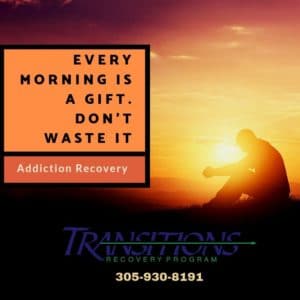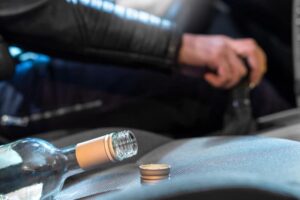So you’re on a journey to find the perfect treatment center and you find yourself wondering, “What is rehab like?” You’re curious about what a typical day in rehab looks like, and that’s perfectly understandable. While the experiences can vary, a standard day in rehab will provide you with the structure and organization you need to achieve your goals.
Choosing from the many residential treatment centers might seem overwhelming at times. However, with each of them showcasing comparable activities and therapies, most of the time, it really comes down to a matter of what’s convenient and within your budget.
Some drug rehab centers also may have a more luxurious feel to them. However, you’ll find all of them will provide a safe and supportive environment as you receive the treatment options you need to recover.
In this article, we’ll touch upon what you can expect while you’re in a rehab program. You’ll learn about the admissions process, accommodations, and daily activities you can expect when you choose Transitions Recovery Program.
If you or someone you love are looking at the options for rehabilitation call us at 800-626-1980.
Your call could save a life.
How Does Rehab and Detox Work?
Before getting started with your rehab program, you’ll have to go through admissions. Employers, Employee Assistance Professionals, union membership professionals, mental health counselors, professional regulatory organizations, physicians, managed care organizations, insurers, and people looking for addiction treatment facilities for a loved one are usually the people referring someone to rehab facilities.
The person who refers someone to rehab is generally involved in the entire process. This includes ongoing evaluations, treatment plan, and continued care during the substance abuse treatment program. Once this person makes the referral, you’ll go through a substance abuse treatment assessment to examine what’s fueling your drug addiction as well as the addiction itself.
Long-term recovery means receiving treatment for all of the withdrawal symptoms of one’s addiction. This means identifying and assessing the consequences. With Transitions Recovery Program possessing a behavioral healthcare team made up of addiction specialists, nurses, and psychologists, the patient’s entire history will be assessed to understand the addiction from all sides.
We’ll analyze the patient’s sociological background, psychological makeup, educational and work history, family and marriage difficulties, and medical issues for a full view of the addiction. Once this is completed, we’ll provide a dual diagnosis and highlight and treat any co-existing mental health issues that could adversely impact your addiction treatment programs or prevent recovery.
The Day-to-Day of Rehab
So what do you do rehab? What is drug rehab like? Well, for starters you’ll wake up bright and early six days per week at 6:30 am. On Sunday, you’ll get to sleep in for an extra half hour. While you might be accustomed to waking up without an alarm clock, your body will get used to waking up to greet your day with a smile.
After waking up, you’ll receive your medication and find your way to a healthy breakfast. We provide residential patients with food cards, and you’ll go food shopping during the week. Since this is a reality-based program, you’ll make your own meals.
If you don’t know how to cook, you can get some easy-to-eat breakfasts. However, as you attend your Life Skills sessions, you’ll learn all you need to know about fixing up something delicious.
Once you have had your breakfast, you’ll attend meditation from 9 to 9:15 am. This is how you’ll start your day with a relaxed state of mind, ensuring the remainder of your day is stress-free and focused on the success of your treatment.
After your meditation session, you’ll usually have a group session. One of our counselors or therapists will lead this session, and it’ll typically focus on topics relating to treatment, addiction and recovery, and the 12-step program. This will be your opportunity to focus on clarifying any issues you’ve had and how the environment and people of your life have contributed to your substance use disorders.
Through these meetings, you’ll learn a lot about yourself. You’ll understand your behavioral patterns and alter them. The potential alcohol use and drug use triggers will also be revealed during these sessions, helping you to avoid them post-treatment and increasing your chances for success.
You can also review our daily schedule that details an hour by hour breakdown.
The following is a list of therapeutic sessions you’ll likely experience while going through drug rehab:
— Individual Behavioral Therapy
Through this individual therapy, you’ll learn more about your behavioral responses relating to certain triggers. After you understand these, your therapist will show you healthier responses to utilize when handling those triggers. With these one-on-one therapy sessions, you’ll make progress regarding your fears and concerns in a safe environment, allowing your therapist the opportunity to offer you tools and alternative behavioral responses to use when necessary.
— Family Therapy
Your family support is essential for your recovery, so it should come as no surprise that the majority of treatment centers incorporate family therapy into their outpatient treatment programs. This disease impacts everyone in your family, typically resulting in destructive codependency and enabling adverse behaviors. The intense anger and resentment that can come as a result of addiction cause problems that family therapy sessions seek to resolve. Addressing unresolved issues and feelings will ultimately assist in the long-term success of your rehabilitation.
— Group Therapy
Group therapy sessions forge strong bonds between people who have gone through the struggles that come with addiction. Sharing your story and listening to other personal stories promotes emotional healing. As you go through these therapy sessions, you’ll learn about the struggles of others and develop a sense of camaraderie in the process. The group nurtures this trust and opens up even more over time as they progress in these group sessions.
— Specialized Sessions
Depending on your needs, you might have some specialized therapy sessions. Whether your diagnosis calls for stress management, grief counseling, or anger management, this is where you’ll find healthy coping techniques to utilize rather than turning to drug abuse or alcohol. These are techniques you’ll use in the real world, preparing you for anything you might find yourself facing upon your completion of recovery.
Fun In Recovery
What is alcohol rehab like? Well, it’s actually a lot of fun at times. After you enjoy your lunch, there is some time dedicated to having fun in recovery. Residents have a couple of hours of free time during the afternoon, and you’ll get to choose how you spend this time. Some people yearn to complete some daily journaling during this time, but there are other options. Whether you’d like to use some of our state-of-the-art facilities to get a workout, hang out with your new friends, or something else, the choice is up to you.
Life Skills
Before dinner, you’ll learn about a plethora of skills that will help you in the real world. These generally include the typical daily activities that someone who struggles with an addiction might have veered away from. From budgeting to paying bills, doing laundry, and cooking, you’ll find the skills you need to get your life together.
With this reality-based addiction treatment, we’re setting patients up to live on their own without difficulty. The normal day-to-day tasks that they might have looked beyond in the past will become essential for their success living a sober lifestyle in the future. As patients go through our aftercare program, they’ll become more well-rounded and capable of taking care of everything they need, ensuring they’re able to live a sustainable sober lifestyle.
12 Step Meetings
After dinner, you’ll attend 12 Step meetings. The founders of Alcoholics Anonymous developed the 12 Steps to provide patients with a set of guidelines for overcoming alcohol addiction. Since it was such a huge success, other addiction support groups continue to adapt these steps to make them fit other addictions. As a participant, you’ll find clarity regarding your past, bringing you knowledge relating to how you can avoid succumbing to addiction in the future.
While these meetings focus on spirituality, nonreligious people still find the assistance they need from attending these meetings. The meetings touch upon God’s presence in ways that each participant understands, enabling each individual to have their own interpretation and religious beliefs while learning more about how they can triumph over their addiction.
Fellowship
Fellowship acts as a nightcap at 11 pm. During this time, you will hear speakers from AA and NA discussing their experiences and their journeys to sobriety. This helps patients by establishing a foundation for life in recovery, encouraging them to continue on their own journey towards a sober lifestyle.
Achieve The Best Transition Of Yourself Now
Now that you know what a day in the life of a patient at Transitions Recovery is like, it’s time to contact the treatment provider you need. Find the best transition of yourself with our professionals, and achieve a sober lifestyle that promotes your success.
If you’re looking to make a positive change in your life, contact us today by calling 800-626-1980.


















